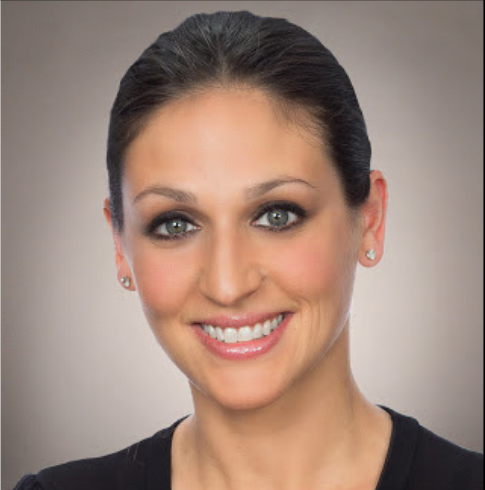How One Passionate Attorney and Mom Helped Pass New York’s Child-Parent Security Act
Alexis L. Cirel, Esq. is a Partner in the Matrimonial and Family Law Group at Warshaw Burstein LLP. She’s also a mom of two through surrogacy, and a passionate fertility advocate who worked tirelessly in favor of the Child-Parent Security Act (CPSA) which legalizes gestational surrogacy in New York. I was honored to chat with Alexis, to hear her family-building story and how it led to a ‘dual enlightenment’, both personally and career-wise. She also shares practical advice on the legal aspects of surrogacy, including when to engage an attorney as well as how the new CPSA law protects New York-based intended parents. Read on to learn more about Alexis, her work and advocacy, and her advice for those about to start this journey!
1. You’re currently a partner at Warshaw Burstein LLP, practicing within the Matrimonial and Family Law Group with expertise in surrogacy law (which not everyone realizes falls under Family Law). With that said – how did you get here? Can you share how your personal fertility journey, including IVF and surrogacy, led to your professional journey to this point?
Yes! My life experience with infertility and having my children with the help of a surrogate most definitely shaped where I am today professionally. In 2012, after 3 years and 9 unexplained failed IVF cycles, my doctor finally convinced me that it was time to pursue surrogacy. It felt like a defeat then; I know better now.
At the time, I was a senior litigation associate at a “big law” law firm in Manhattan working less-than-human hours, which was not an easy balance with the daily monitoring requirements and other physical and emotional tolls of IVF. Because surrogacy was illegal in New York at the time, my husband and I met with an ART lawyer out-of-state who herself had children through surrogacy. It was inspiring in ways I cannot fully explain. I remember vividly a moment of dual enlightenment as I sat across from her for the first time, and two things became clear: one, I was going to be a mother, and it didn’t matter how; and two, lawyers can actually make a difference in people’s lives. From that moment on I had new resolve and purpose, both personally and professionally.
On the personal side, I accepted and embraced the process, as difficult as it was at times. I met a woman from Pennsylvania who would go on to carry both of my children, and who I’m so proud and humbled to call my friend today. From the start, her wisdom and words of encouragement gave me the fortitude to stay positive throughout the process. I can honestly say now that my children’s unique and miraculous story of how their lives began is one that I would not change for the world.
On the professional side, I knew that I had to make a change to a family law practice. I took a job with a matrimonial law firm in New York City where I could use my litigation skills, and at the same time committed myself to studying fertility law and being a part of the advocacy efforts to lift the antiquated ban on surrogacy in New York state. I did that for the next six years until we finally passed the Child- Parent Security Act in April 2020 and the rest is history!
2. When is the best time in the process for Intended Parents to engage a surrogacy attorney and what types of decisions should they expect to make during the contracting phase?
It is never too soon to consult with an attorney once you know that your path to parenthood will include surrogacy. In New York, our surrogacy law requires that the attorney-client engagement must include not just the negotiation and execution of a surrogacy agreement but must also extend throughout the duration of the pregnancy and for twelve months after the birth of your child. In other words, the relationship with your surrogacy lawyer will literally see you through the entire process, so forming a trusting and close connection from the start can make all the difference in terms of your comfort-level. As I mentioned, the first step in my surrogacy journey was a meeting with my attorney and it honestly gave me a sense of peace with the process that I never thought I would have.
In addition, meeting with a lawyer early on in your journey is especially important for intended parents who pursue surrogacy in New York because our new law says that the attorneys who represent the surrogate and the intended parents must be independent from the matching agency who matched them. This ensures integrity and the avoidance of conflicting interests among the professionals involved in the surrogacy process and means that your first stop does not have to be the matching agency. Whereas in other states intended parents largely rely on the agency’s affiliates or referrals for legal representation, in New York you can choose who you want to work with right from the start. Your lawyer can support you by guiding you to helpful resources and other members of the multi-disciplinary professional team that will be a part of your journey, including what matching program is right for you.
The inspiring Alexis L. Cirel, Esq., mom through surrogacy and Partner at Warshaw Burstein LLP.
3. You advocated for the Child-Parent Security Act, which legalized compensated gestational surrogacy in the state of New York – and you were even appointed to Governor Andrew Cuomo’s Campaign Leadership Committee in connection with these efforts. What are the key ways in which this law protects New York intended parents who will now be able to build their families via surrogacy, within their own state (finally!).
Where do I start?! The silver lining to being one of only two states in the country that outlawed surrogacy was that New York had the benefit of seeing what worked (and what didn’t) in other states and drawing from that experience in forming our legislation. Our law (the CPSA) truly takes the best parts of regulations from other states, as well as guidance from uniform and model acts, and condenses them into a comprehensive scheme that anticipates and addresses any issues that may arise.
For example, the CPSA says that a surrogate is only eligible to participate if she has provided fully informed consent prior to executing the surrogacy agreement after a licensed health care practitioner has explained: (1) the medical risks of surrogacy including the possibility of multiple births, risk of pregnancy complications, (2) the psychological and psychosocial risks of surrogacy, and (3) the impacts on her personal life. This protects both the surrogate and the intended parents by ensuring that only women who truly understand, appreciate, and accept the complexities of the process are participants, which helps avoid potential conflicts down the road.
Another benefit of our law is that it does not discriminate in terms of intended parents’ eligibility based on gender, sexual orientation, or marital status. Intended parents can be single, married, or intimate partners, gay, straight, or otherwise.
The CPSA also allows intended parents to obtain pre-birth judgments of parentage through a streamlined and efficient court process without the need for a hearing, so your legal relationship with your child is secure from the moment of his or her birth.
Finally, like I said earlier, the New York statute ensures integrity and avoidance of conflict among the professionals involved in the surrogacy process by requiring that matching agencies and escrow agents are independent from (and thus do not have any financial interest or motive in) the legal arrangement between intended parents and surrogates.
4. How long were you working towards this mission and what were some highlights along the path to passing such important legislation?
Without question the highlight of the years-long advocacy venture was when I traveled to Albany in February 2020 for an advocacy day specific to our law. The woman who was the surrogate for both of my kids met me there, and together we went to legislator after legislator’s office to explain why this law is so important to so many. I remember at one point we sat in one of the great rooms in the Capitol Building listening to the Lieutenant Governor speak and we held hands, both of us crying and so moved by the moment. Another pair of women approached us later and asked us “are you mom and surrogate?” We said, “Yes! how did you know?” They said, “we are too; that bond is an obvious one.” It was awesome and most certainly a moment I will forever cherish and never forget.
Bringing the little one home to NYC!
5. Moving on from helping so many other New York families… to your own family, quarantining in New York for going on a year now. Hopefully the silver lining was extra time with your kids! Any favorite (or funniest) stories from this whole experience?
OMG it was an experience all right! “Ipad school” (as my kids liked to call it) was not exactly easy while working from home, but we had some fun and creative adventures together along the way. Without question, the best story was when my 4-year-old daughter started pounding on my bedroom door and screaming and crying hysterically while I was in the middle of an oral argument with a judge and other attorneys on Zoom. I tried to ignore it, but the judge finally said, “Ms. Cirel, I think you should get that.” I was mortified. My daughter sat on my lap for the remainder of the court appearance. The best part was that minutes later the judge’s dog started barking incessantly so he brought the dog in to sit on his lap too! It was a humbling experience all around.
6. What is your advice for intended parents on GoStork, who are taking the first steps on their own family building journey?
It is ok to feel overwhelmed, scared, lost, angry, joyful, sad … you name it. Whatever you are feeling is right for you. Do not judge yourself, take it slow if you need to, and lean on others for support. So many of us have experienced similar journeys, albeit with our own unique stories. Take strength from the happy endings you see all around you and find yourself the right team and support system to guide you through the road ahead.
Thank you for sharing your journey with us, Alexis, we’re in awe of your work and your advocacy efforts!
Intended parents, learn more about Alexis Cirel and Warshaw Burstein LLP here.

